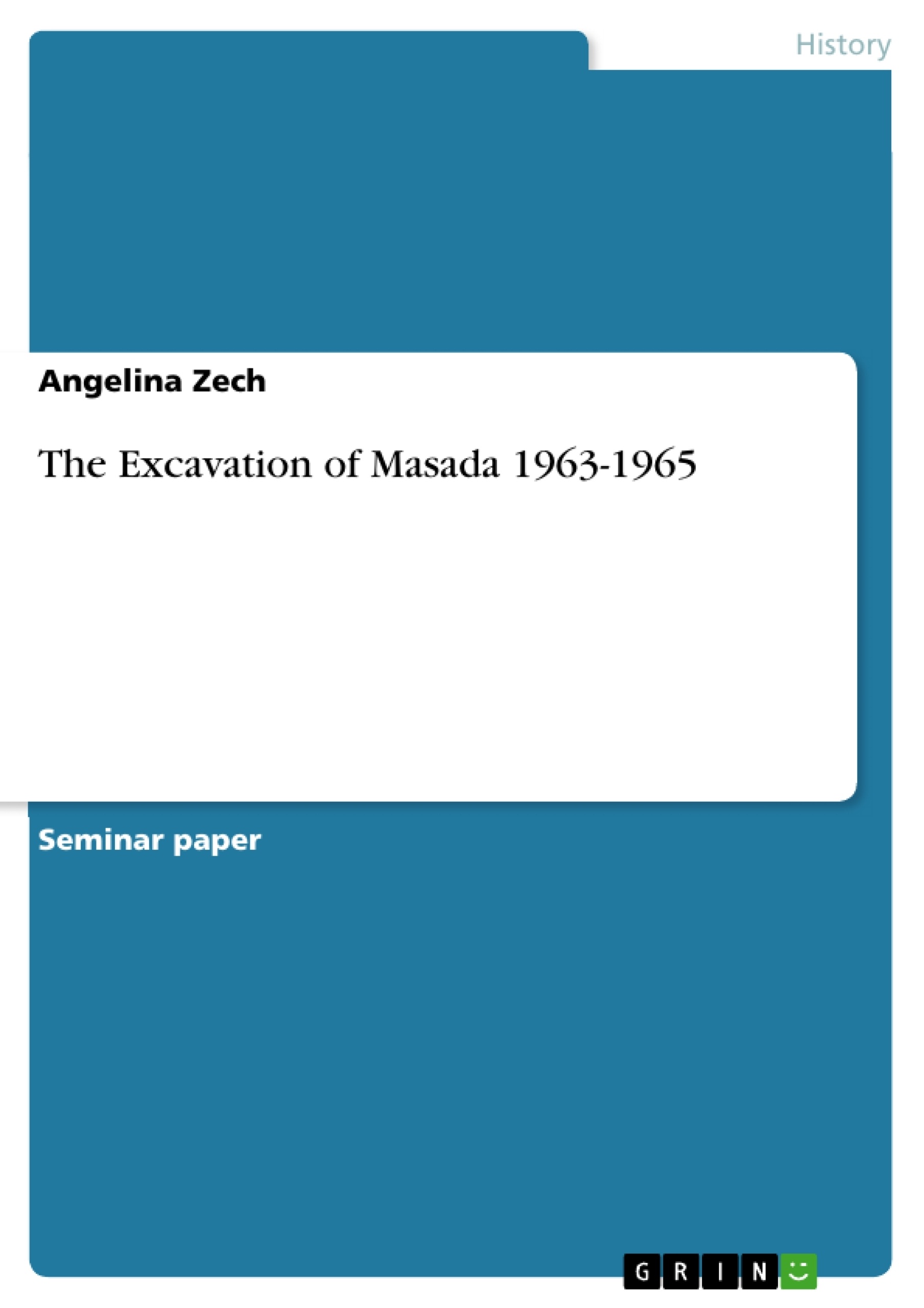According to Josephus Flavius, who was a Jewish historian, wrote about the battle of Masada that occurred around 73 A.D. There, the Jews lost their land to the Romans. Masada was the last straw of the fight, where multiple people committed suicide before they were able to be murdered. Referring to Flavius, as he was the only source, had great impact on the excavation of Masada in the 20th century since without him, the amazing archeological structures would just be ruins in the Judean desert. As important as the “buildings” themselves is the connection between archeology in the context of politics. Goal of this fusion was to construct personal and national identities. Yigael Yadin was the head of the excavation of Masada. He was born in in Jerusalem in 1917. After accomplishing various studies, he started his military career. When he resigned, he took up his work as an archeologist and was part of the excavation of the major site of Hazor. This term paper will focus on the excavation of Masada during 1963-1965. This will be done by analyzing the history of the battle which is the mythical narrative of the story by Yadin. Moreover, it is essential to talk about the Josephus Flavius Narrative. Third, how the mentioned politics and Masada correlate with each other. Lastly, the process of the excavation will be described as it was one of Yigael Yadin’s greatest work and the topic of the primary source called “Excavating Masada. The Politics-Archeology Connection at Work” by Ben-Yehuda Nachman.
Inhaltsverzeichnis (Table of Contents)
- INTRODUCTION
- THE MYTHICAL NARRATIVE
- JOSEPHUS FLAVIUS NARRATIVE
- CORRELATION OF MASADA AND POLITICS
- THE EXCAVATION OF MASADA
- CONCLUSION
- BIBLIOGRAPHY
Zielsetzung und Themenschwerpunkte (Objectives and Key Themes)
This term paper focuses on the excavation of Masada during 1963-1965, analyzing the historical narrative surrounding the site, the connection between archaeology and politics, and the process of the excavation itself. It particularly investigates the role of Yigael Yadin, the head of the excavation, and his interpretations of the "Battle of Masada."
- The mythical narrative surrounding the Siege of Masada
- Josephus Flavius's account of the events at Masada
- The correlation between Masada and Israeli politics
- The process and significance of the excavation of Masada
- The impact of archaeology on national identity formation
Zusammenfassung der Kapitel (Chapter Summaries)
- Introduction: This chapter sets the stage for the paper, introducing the historical context of the Siege of Masada, the importance of Josephus Flavius's account, and the role of Yigael Yadin in the excavation of Masada.
- The Mythical Narrative: This chapter examines the historical narrative surrounding the Siege of Masada, exploring how Yadin's interpretation shaped the story. It discusses the role of the Sicarii and the suicide pact, questioning the evidence supporting a major battle at Masada.
- Josephus Flavius Narrative: This chapter analyzes Josephus Flavius's account of the events at Masada, focusing on the role of the Sicarii and the Zealots in the revolt. It considers the different interpretations of Josephus's work and the portrayal of the Sicarii as a doomed revolt.
- Correlation of Masada and Politics: This chapter explores the connection between Masada and Israeli politics, highlighting the use of the site as a symbol of Jewish resistance and national identity. It discusses the influence of historical narratives on national narratives and the role of archaeology in shaping these narratives.
- The Excavation of Masada: This chapter details the process of the excavation of Masada by Yigael Yadin, emphasizing the scale of the project, the involvement of volunteers and the Israeli army, and the financial support received. It also highlights the impact of the excavation on public awareness and national identity.
Schlüsselwörter (Keywords)
Key terms and concepts explored in this paper include the Siege of Masada, Josephus Flavius, Yigael Yadin, Sicarii, Zealots, Israeli politics, national identity, archaeology, mythical narrative, and the politics-archeology connection.
- Quote paper
- Angelina Zech (Author), 2022, The Excavation of Masada 1963-1965, Munich, GRIN Verlag, https://www.grin.com/document/1331030




